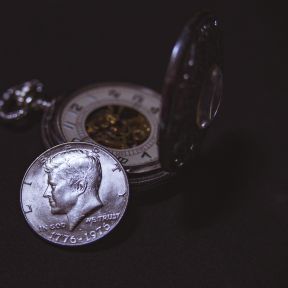Personality and Relationships
An individual’s personality can be an important contributor to their ability to maintain successful relationships, depending in part on the traits, and tolerance, of their partners. Being introverted or extraverted, open to new things or resistant, or generally neurotic or conscientious, determines what kind of person, and what kind of partner, an individual may be, although the effect of a single trait on a person’s life outcomes is only can vary widely and many people find a way to accommodate a partner’s emotional needs.
For more, see Personality.
On This Page
Personality can affect one’s ability to find happiness in relationships, but it is never the only factor and it does not have to be a roadblock. Attachment style, for example, can have a significant influence on relationship success. Individuals with an “insecure” attachment style, a trait typically developed in childhood, may be highly anxious about the security of their adult relationships or may avoid commitment altogether. But an awareness of one’s tendencies to resist or stress out about finding love, and a willingness to talk to partners about it, can help individuals manage their challenges ad find a path to a healthy long-term relationship.
Your personality predicts your romantic life but some traits are more strongly linked to success than others. Someone who is especially high in neuroticism, for example, may struggle to maintain relationships, and take longer to recover after a breakup, while being high in consciousness and agreeableness tends to predict more relationship success. Extroversion is generally tied to positive long-term relationships, but being adventurous is not.
Introvert-extrovert couples can thrive if each is willing to accommodate the other’s emotional needs. Extroverts may need to be patient with their partners, and respect their right to quiet or alone time. Introverts, for their their part, should not avoid important discussions and understand that their partners are entitled to opportunities to be outgoing and social.
It can be hard to establish relationships after a rough childhood, but many find a way, and no one should assume they will never find love. People raised in chaotic homes may be reluctant to speak up for themselves or to demand what they need from a partner. Becoming conscious of why they’re reluctant to advocate for themselves is a crucial step toward overcoming those tendencies and finding connection.
Committing to a relationship with someone high in the trait of narcissism often leads to an unfulfilling relationship, even if it takes a while to discover the deficits at its core. A narcissist avidly seeks admiration, from romantic partners above all, and so when they first meet a potential partner, they may be highly charming and charismatic, and overwhelm someone with attention, moving a relationship forward much more quickly than others might. Their eagerness may be attractive, but their fundamental lack of empathy can leave them disinterested in a partner's deeper thoughts and feelings over the long term.
People who actually have narcissistic personality disorder are virtually unable to fall in love or form an equitable relationship. Such individuals instead will likely try to establish strict rules and isolate a romantic partner from their friends and family, among other disturbing behaviors.
For more, see Narcissism.
A relationship with a narcissist can be emotionally draining, in part because these relationships tend to flourish early on—narcissists work hard to make strong first impressions. But a tendency to isolate a partner from others, to speak of exes in degrading terms, or to use punishments like the silent treatment on a partner should all be seen as red flags.
You can have a successful relationship with a narcissist but it’s more likely if it’s only short-term. People high in narcissism tend to have qualities that make them charming and attractive in the short term. But over time, their need to be on top can lead to rivalry with a partner, to the extent that they may cheer for their failures. Narcissists can feel love, and express it, but may struggle to make that love unconditional.
Echoism, a term coined by psychologist Craig Malkin, refers to people who have an aversion to seeming narcissistic in any way. This tendency tends to lead echoists into relationships with narcissists because they are willing to put others’ needs and goals ahead of their own, they can be highly self-critical, and they resist any special treatment or attention.
People living with personality disorders can struggle to manage the give and take of relationships, especially the frequent minor conflicts common to most romantic partnerships. Fearing abandonment, or averse to giving in, they may cling to partners or push them away when they feel their connection is threatened. Working to achieve healthy, secure attachment with a partner and to trust in their support can help make relationships workable.
For more, see Personality Disorders.
People with depression rely on their partners to balance their own sadness and feelings of low self-esteem and even to help reverse their dark moods. And in fact, research finds that a healthy, committed relationship, over time, does buffer the symptoms of depression, and that having a supportive partner makes treatment for depression more likely to succeed. But a relationship that does not meet those criteria can make symptoms even worse.
Research suggests that aspects of psychopathy can be sexy, and in fact it may be an effective trait for mating in the way it’s expressed through body language and vocal tone. People may fall for psychopaths because those partners pursue them with intensity and passion, yet they fail to connect on a deeper level and may eventually find their targets to be disposable or deserving of abuse.
People with borderline personality disorder strive for closeness, but their attempts to fill the emptiness they often feel inside can drive away those closest to them. They may move quickly and aggressively, even obsessively, to win someone over, but sustaining intimacy is a major challenge, and when people disappoint them, they may feel react with rage or paranoia. Yet a stable, committed partner can help them set aside self-destructive actions and break the cycle.
Changes to the brain can have a profound effect on one’s relationship. A stroke or other brain trauma can in some cases make someone suddenly much more loving, or in more troubling cases, highly sexually compulsive. Rehabilitation, however, can help to manage symptoms that move people far from their baseline personality.














